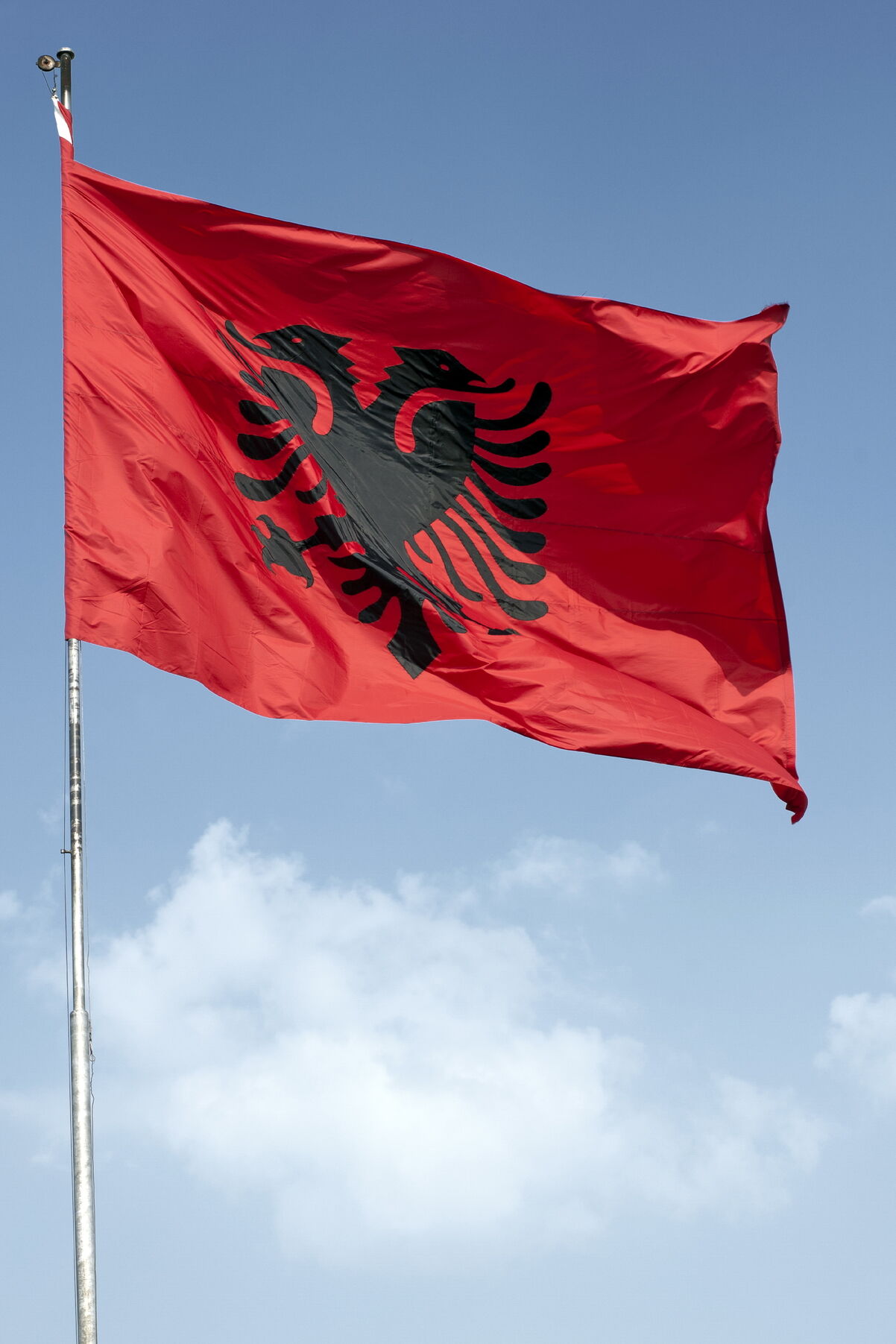Albania is set to launch its first LGBTQ helpline to offer support and resources to a community that faces extraordinary challenges in one of Europe’s most homophobic countries.
The international advocacy group All Out partnered with local LGBTQ groups to launch a successful Kickstarter campaign earlier this year; over 1,000 people donating to the project. Livia Zotrija, a project coordinator with Aleanca LGBT in Albania, says that for the past three years, queer and trans people have been calling her organization asking for assistance. Sometimes people are so desperate for help they call her personal phone.
“We had a lot of cases where people were calling me at 2:00am saying their father threw them out and they don’t have anywhere to go,” Zotrija recalls.
Sometimes the questions Aleanca would receive were basic. Callers often asked where they might go to find a partner or meet other people. But other inquiries were more difficult: “Where can I go to get HIV/AIDS medication? If I go to the hospital, will the doctors discriminate against me?”
“We’re just three people,” Zotrija says. “We’re not health professionals.”
A project like the LGBTQ helpline, which debut later this year, couldn’t come at a more critical time for Albania’s queer and trans community.
A 2013 report from the Open Society Foundation alleged that Albania, which borders Greece, is one of the most harsh and brutal for LGBTQ people to live in. Although homosexuality was decriminalized in 1992, the persecution of sexual and gender minorities persists. LGBTQ people face rampant discrimination in healthcare, housing, and the workplace, making it difficult to be open about one’s identity.
Albanian LGBTQ activist Xheni Karaj claims that 98 percent of the country’s queer and trans population is in the closet due to pervasive bigotry.
“I remember a case when I took a transgender woman to the hospital after she had been bitten by a police officer,” Karaj, who serves as executive director of Aleanca, tells INTO in an email. “The first thing that the doctor said to me when he saw me with her was: ‘Why don’t you leave these people to die?”
Although Albania has laws on the books prohibiting discrimination against LGBTQ people, these regulations are not enforced. Karaj believes there’s a reason for that. He says that the Balkan country, which is progressive on paper, has modernized its legislation in order to gain admittance into the European Union. LGBTQ people, for instance, are allowed to serve openly in the military, and gay men are permitted to donate blood.
These overtures to the EU have not translated to real change on the ground, he says. The 2013 OSF survey found that 53 percent of Albanians felt LGBTQ people “should not be free to live life as they wish.”
Because of the little investment in combating homophobia, Zotija says queer and trans people often have nowhere to turn. Teachers lack even basic knowledge or information on LGBTQ identities, which leads to rampant bullying in schools. It’s common for queer youth to drop out as a result, many of whom are forced onto the street because of family rejection. An homeless shelter for LGBTQ people between the ages of 18 and 25 was opened three years ago. But with just eight beds, it can be hard to meet demand.
“The system in Albania has failed,” Zotija claims.
This failure has led to an exodus of LGBTQ people in recent years, as Karaj claims that the number of asylum requests to countries like Norway and Sweden have “doubled.” But for those who have no choice but to stay, advocates believe having a resource like the LGBTQ helpline will save lives.
The service will be manned by a three-person team available to connect LGBTQ people with service providers, give them accurate information, or just listen to their concerns. Zotija says that the helpline is currently in the process of hiring a psychologist, a doctor, and the affirming parent of an LGBTQ person to take calls. Their long-term goal will be to build trust with the public institutions that have ignored queer and trans people and shut them out.
“When LGBTQ people are desperate for help, they need LGBTQ-friendly professionals available for them,” says Yuri Guaiana, a campaigner with All Out. “This is exactly what this helpline will provide: critical help which can’t be found anywhere else.”
Organizers say the helpline will be live “very soon.”
Don't forget to share:
Help make sure LGBTQ+ stories are being told...
We can't rely on mainstream media to tell our stories. That's why we don't lock our articles behind a paywall. Will you support our mission with a contribution today?
Cancel anytime · Proudly LGBTQ+ owned and operated
Read More in Impact
The Latest on INTO
Subscribe to get a twice-weekly dose of queer news, updates, and insights from the INTO team.
in Your Inbox













